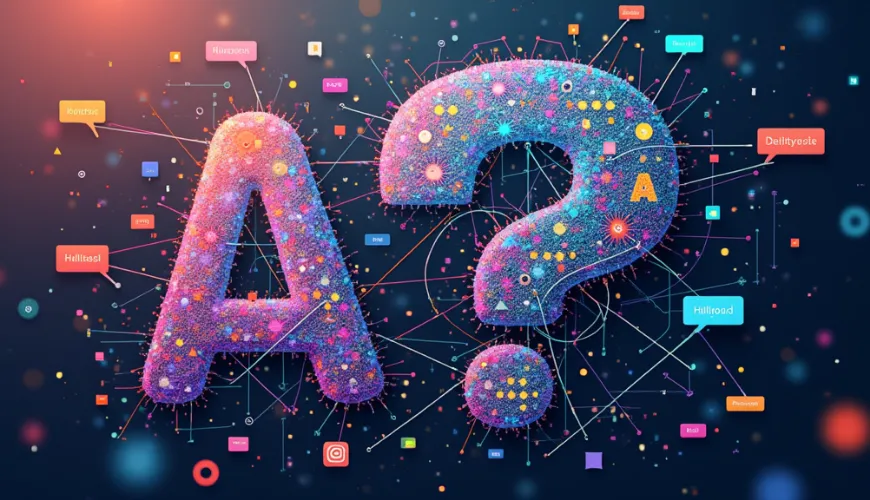Artificial intelligence (AI) has transformed the way we interact with technology, making it possible for users to obtain information and assistance instantly. Whether you're looking to ask AI a question online for free or simply curious about how to phrase your queries, this article will provide you with insights on doing so effectively.
Understanding AI: What You Need to Know
AI, at its core, is designed to simulate human intelligence processes through machines, particularly computer systems. It can comprehend, analyze, and respond to user queries in natural language, allowing for a seamless interaction. To maximize the benefits of AI, it's essential to understand not just where to find AI platforms but how to interact with them.
Try asking AI:
How to Ask AI a Question
-
Start with a Clear Objective: Know what information or help you seek before framing your question. This makes AI responses more relevant and precise.
-
Be Specific and Detailed: Instead of asking broad questions, narrow your focus. For instance, instead of "How can I improve my plant care?" ask "What are the best practices for watering succulents indoors?"
-
Use Simple Language: Avoid jargon or complex vocabulary. Clear and concise language improves AI comprehension.
-
Use Context When Necessary: Providing context can help AI give more tailored answers. For example, "What's the best Italian recipe for beginners?" includes the level of expertise and cuisine type.
Claila: An Online Platform Offering AI Tools, Including ChatGPT, Claude, Mistral, Grok, and More
Claila is an online platform that brings together leading AI tools into a single, easy-to-use interface. Users can access multiple advanced AI models, including:
ChatGPT by OpenAI is well known for its ability to engage in conversational interactions while delivering comprehensive answers on a wide range of topics. Its versatility allows users to explore numerous subjects with clarity and depth.
Claude, developed by Anthropic, excels in providing thoughtful and nuanced responses. It is particularly useful for handling deep or complex inquiries where a more refined and careful approach is needed.
Mistral stands out for its speed and efficiency, making it an excellent choice for generating clear and concise information quickly. Users who prioritize quick, direct answers often find it highly effective.
Grok is designed to deliver precise, factual answers with a straightforward approach. It simplifies complex topics while ensuring accuracy, making it a reliable tool for users seeking well-structured information.
With Claila, users can seamlessly leverage the strengths of various AI services from one convenient location.
Examples of Real-life Applications
AI is not confined to question-answering tasks. It plays a pivotal role in various sectors:
AI is transforming education by providing students with tutoring systems that help clarify doubts and enhance their understanding of complex topics. These systems offer personalized learning experiences, making education more accessible and effective.
In healthcare, AI can assist patients by offering preliminary health advice before they consult with a doctor. However, patients should not rely solely on AI for medical decisions, as professional medical evaluation remains essential (Reference).
When it comes to customer service, AI-powered chatbots play a crucial role in reducing wait times. By assisting users with troubleshooting and responding to common inquiries, these chatbots improve efficiency and enhance the overall consumer experience.
How AI Understands and Processes Questions
AI uses algorithms and machine learning to process questions, offering the best possible answers. Here's how an AI system works:
Natural Language Processing enables AI to comprehend and interpret human language in both written and spoken forms. This capability allows AI to engage in meaningful conversations, answer queries accurately, and even recognize nuances in language.
Through Machine Learning, AI continuously improves its responses by learning from previous interactions. By analyzing patterns and adapting to new types of questions, AI can refine its understanding and provide more precise and relevant answers over time.
AI also utilizes Data Analysis to process vast amounts of information, helping it predict user needs and preferences. By assessing past interactions and identifying trends, AI can tailor its responses to better suit individual queries, enhancing overall user experience.
Common Challenges in Asking AI a Question
Even with advanced technology, challenges persist:
Asking vague questions can often result in generic or irrelevant answers. For example, if you inquire, "Tell me about travel," the AI might generate a broad response covering anything from travel history to general travel tips. This lack of specificity can make it difficult to receive the precise information you're looking for.
Additionally, AI has limitations in understanding tone and nuance. It may struggle to detect sarcasm or humor, which can lead to responses that do not align with the intended meaning of the question. This can sometimes result in confusion or answers that seem inappropriate for the context.
Best Practices for Effective AI Interaction
To avoid common pitfalls and make the most of AI interactions, here are some tips.
If a response isn't accurate, it's helpful to provide feedback when possible. Informing the AI about mistakes allows it to learn and improve over time, making future interactions more reliable. Some systems have built-in feedback options to facilitate this process.
If an answer doesn't fully meet your needs, consider refining your question. Adjusting the wording or adding more details can lead to better results. Follow-up questions are especially useful for clarifying or expanding on the initial response.
AI technology evolves rapidly, with new features and platforms emerging frequently. Staying updated on these advancements ensures you're making the most of available tools and improving your overall interaction experience.
Future of AI in Everyday Tasks
AI's role in everyday life is poised to expand further. From personalized shopping experiences to enhanced virtual reality interactions, the future holds immense potential. Reliable sources like the MIT Technology Review frequently delve into breakthroughs and the growing applications of AI, offering insight into what's next in this dynamic field.
Ultimately, the real art lies not just in the questions we ask but in our curiosity about the answers. AI opens doors to a world teeming with information, offering us new ways to learn, innovate, and solve problems. With these tips, you're better equipped to leverage AI's capabilities, turning its vast knowledge into practical solutions.



